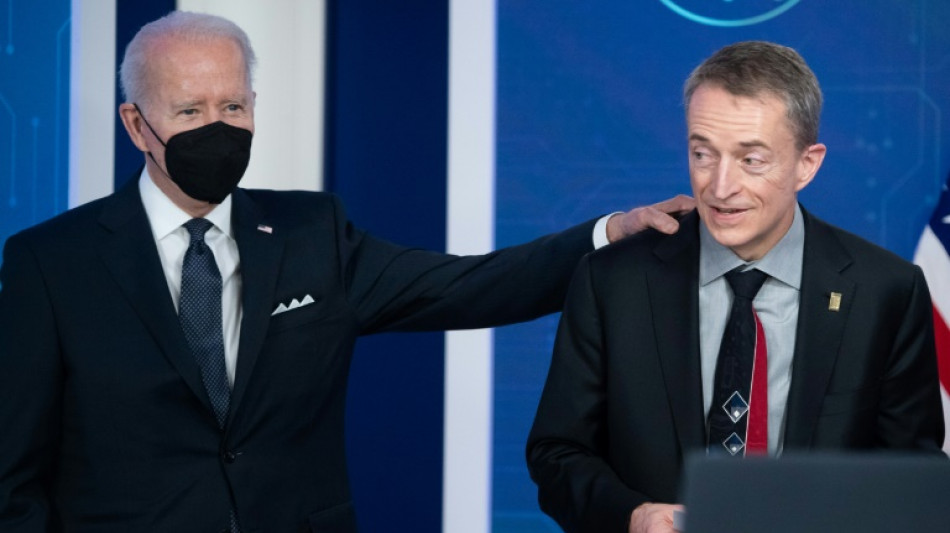
-
 Pocket watch found on Titanic victim to go on sale in UK
Pocket watch found on Titanic victim to go on sale in UK
-
UK top court rules definition of 'a woman' based on sex at birth

-
 All Black Ioane to join Leinster on six-month 'sabbatical'
All Black Ioane to join Leinster on six-month 'sabbatical'
-
Barca suffer morale blow in Dortmund amid quadruple hunt

-
 China tells Trump to 'stop threatening and blackmailing'
China tells Trump to 'stop threatening and blackmailing'
-
Iran FM says uranium enrichment 'non-negotiable' after Trump envoy urged halt

-
 Automakers hold their breath on Trump's erratic US tariffs
Automakers hold their breath on Trump's erratic US tariffs
-
Cycling fan admits throwing bottle at Van der Poel was 'stupid'

-
 Troubled Red Bull search for path back to fast lane
Troubled Red Bull search for path back to fast lane
-
China's forecast-beating growth belies storm clouds ahead: analysts
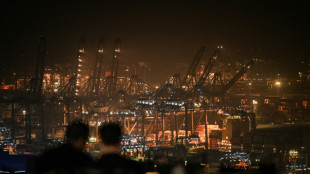
-
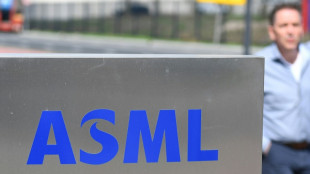 ASML CEO sees growing economic 'uncertainty' from tariffs
ASML CEO sees growing economic 'uncertainty' from tariffs
-
Heineken beer sales dip, tariffs add to uncertainty

-
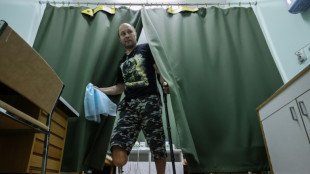 Rehab centre for Russian veterans from Ukraine fills up
Rehab centre for Russian veterans from Ukraine fills up
-
Dutch flower industry grasps thorny pesticide issue

-
 Solar boom counters power shortages in Niger
Solar boom counters power shortages in Niger
-
Malnourished children in Afghanistan at 'high risk of dying' without US aid
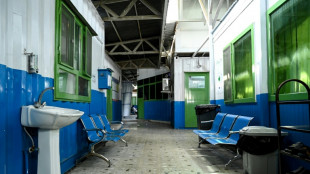
-
 Skating comeback queen Liu says she can get even better for Olympics
Skating comeback queen Liu says she can get even better for Olympics
-
'Let's rock': world music icon Youssou N'Dour back on the road

-
 Mackerel and missiles: EU-UK defence deal snags on fish
Mackerel and missiles: EU-UK defence deal snags on fish
-
Istanbul's Hagia Sophia prepares for next big quake

-
 'Magician' Chahal casts spell with IPL heroics
'Magician' Chahal casts spell with IPL heroics
-
WHO countries strike landmark agreement on tackling future pandemics

-
 Kerr salutes Harvard defiance over Trump after Warriors win
Kerr salutes Harvard defiance over Trump after Warriors win
-
Canada party leaders hold high-stakes debate two weeks from vote
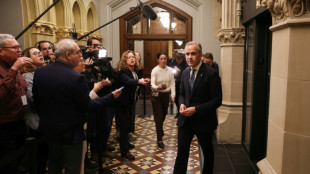
-
 As war grinds on, Ukraine's seniors suffer
As war grinds on, Ukraine's seniors suffer
-
ASML CEO sees 'increased macro uncertainty' from tariffs
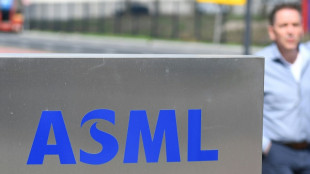
-
 Pope leaves faithful guessing over Easter appearances
Pope leaves faithful guessing over Easter appearances
-
Butler, 'Batman' Curry shine as Warriors down Grizzlies to reach playoffs

-
 Skating 'Quad God' Malinin ready for Olympic favourite tag
Skating 'Quad God' Malinin ready for Olympic favourite tag
-
Toppmoeller has ascendant Frankfurt challenging their limits

-
 Cambodia's Chinese casino city bets big on Beijing
Cambodia's Chinese casino city bets big on Beijing
-
Vespa love affair: Indonesians turn vintage scooters electric

-
 Europe seeks to break its US tech addiction
Europe seeks to break its US tech addiction
-
Long-abandoned Welsh mine revived as gold prices soar
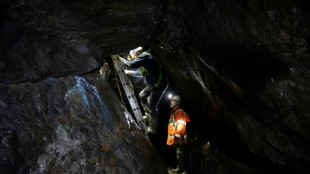
-
 UK's top court to rule on how to define a 'woman'
UK's top court to rule on how to define a 'woman'
-
WHO countries reach landmark agreement on tackling future pandemics

-
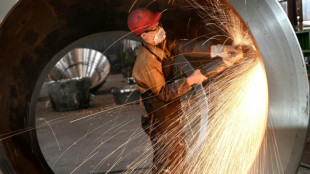 Stocks struggle again as Nvidia chip curb warning pops calm
Stocks struggle again as Nvidia chip curb warning pops calm
-
China's economy beats forecasts ahead of Trump's 'Liberation Day'

-
 China's economy beat forecasts in first quarter ahead of Trump's 'Liberation Day'
China's economy beat forecasts in first quarter ahead of Trump's 'Liberation Day'
-
Trump orders critical minerals probe that may bring new tariffs
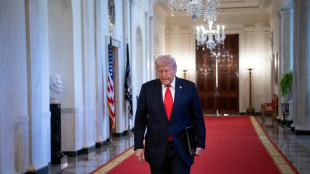
-
 Onana faces date with destiny as Man Utd chase Lyon win
Onana faces date with destiny as Man Utd chase Lyon win
-
Lessons in horror with Cambodia's Khmer Rouge tribunal

-
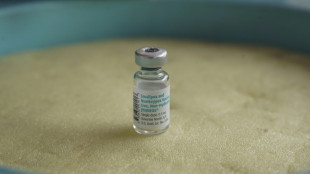 Pandemic agreement: key points
Pandemic agreement: key points
-
Paramilitaries declare rival government as Sudan war hits two-year mark

-
 Landmark agreement reached at WHO over tackling future pandemics
Landmark agreement reached at WHO over tackling future pandemics
-
'La bolita,' Cuban lottery offering hope in tough times

-
 'Toxic beauty': Rise of 'looksmaxxing' influencers
'Toxic beauty': Rise of 'looksmaxxing' influencers
-
Facebook added 'value' to Instagram, Zuckerberg tells antitrust trial

-
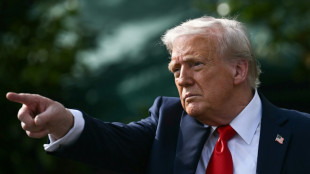 Trump signs order aimed at lowering drug prices
Trump signs order aimed at lowering drug prices
-
Paramilitaries declare rival government as Sudan war enters third year


Biden hails Intel's $20 bn chip plant investment amid shortage
President Joe Biden on Friday praised Intel's plans to spend $20 billion on a new US semiconductor facility, hailing the "historic" investment even as a global chip shortage fans the inflation wave weighing on his leadership.
Biden is urging manufacturers to bring production back to the United States, which was once a leader in making the chips key to everything from vacuums and televisions to cars which have become scarce during the pandemic.
Intel said it plans to begin construction at the end of the year on two plants in the Midwestern state of Ohio, and chip production could start as early as 2025.
"This is a truly historic investment in America and American workers," Biden said at the White House, where he spoke alongside Intel's CEO Pat Gelsinger.
Biden called it "one of the largest investments in semiconductor manufacturing in American history."
Problems in global supply chains have highlighted the fundamental importance of semiconductors, as well as the risks of overreliance on imports.
The closure of semiconductor plants, particularly in Asia, due to pandemic disruptions led to a global chip shortage that has affected a range of industries from automobiles to video games.
That was coupled with surging demand creating bottlenecks, forcing companies to slow production, and sending prices soaring.
"This will be our first new manufacturing site in 40 years, and spanning nearly 1,000 acres (400 hectares) will be a mega fab location," Gelsinger said at the White House.
"The site alone could grow to as much as $100 billion of total investment over the decade," he added.
- Boosting domestic production -
With the pandemic highlighting industrial dependence on imports, governments, particularly in the United States and Europe, have focused on securing semiconductor supply after years in which manufacturing has shifted to lower-cost Asian countries.
Geopolitical tensions also play a roles as the chips are largely manufactured in Taiwan, over which China has expressed territorial claims.
In a statement cheering the Intel announcement, the White House lamented that the United States had "lost its edge -- our share of global semiconductor production has fallen from 37 percent to just 12 percent over the last 30 years."
Biden's administration wants to invest $52 billion in domestic semiconductor research and production.
The Senate approved a bill last year but it still needs to pass the House of Representatives.
Intel last year announced a $20 billion investment in two new factories in Arizona.
The company plans to hire 3,000 new workers for the new site in Ohio, and building the factories will involve 7,000 construction workers.
The announcement Friday comes ahead of an eagerly awaited decision from the California-based group on the location for its European factories, which will make semiconductor components so fine that they are measured in nanometers.
Germany appears to be the favorite to host the Intel site.
Other major players in the microchip sector also are considering locating production closer to American consumers.
South Korean electronics giant Samsung announced in November it would build a $17 billion factory in Texas.
Since the start of 2021, the semiconductor industry has announced nearly $80 billion in new investment in the United States through 2025, according to industry federation data cited by the White House.
L.Dubois--BTB
